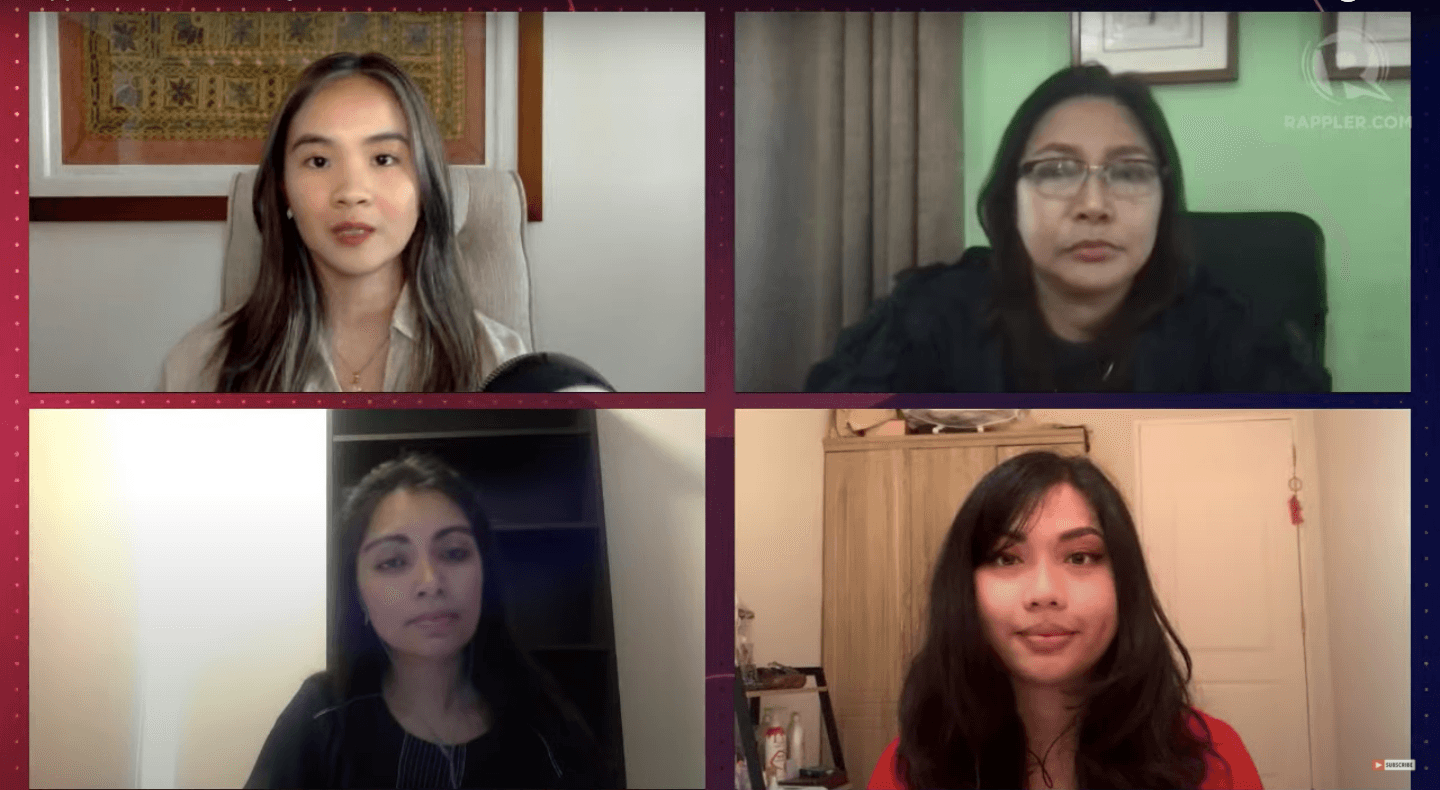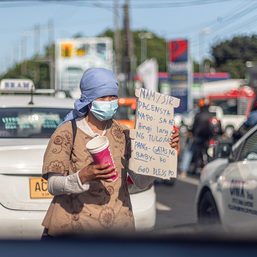SUMMARY
This is AI generated summarization, which may have errors. For context, always refer to the full article.

MANILA, Philippines – Academic gender experts and an LGBTQ+ rights organization leader say that gender rights are not only limited to what usually comes to mind, like anti-violence against women, divorce, abortion, and LGBTQ+ rights – rather, gender spills into crucial issues that the next set of elected leaders must address.
“Intersectionality is very important in policy. And in using the gender lens, [we see that] women as a group are not monolithic. The needs and concerns of women, for instance, in Forbes Park will be very different from those of women in Payatas or Baseco,” said University of the Philippines political science professor Jean Franco.
This “intersectionality” of gender was discussed in a Rappler Talk episode on Tuesday, March 29, with Franco, London School of Economics and Political Science gender and human rights fellow Sharmila Parmanand, and Bahaghari chairperson Rey Valmores-Salinas.

‘LGBT issues are people’s issues’
According to Salinas, the LGBTQ+ (lesbian, gay, bisexual, transgender, queer+) community should not be seen as “one-dimensional” when considering their struggles.
She said that the plight of the LGBTQ+ community cannot be divorced from the issues that the rest of marginalized Filipinos also experience.
“We are also the workers who experience contractualization, and a lack of dignified work here in the country. We are also the LGBT peasants and farm workers in the countryside who do not have our own land and who experience abuses as a result of the land monopoly by certain families and landlords in the countryside,” she said.
“We are the LGBT national minorities and indigenous peoples whose communities are being bombed, being militarized, and whose ancestral lands are being destroyed,” she added.
Salinas recalled President Rodrigo Duterte’s grant of absolute pardon to American soldier Joseph Scott Pemberton, who killed transgender woman Jennifer Laude in October 2014.
She said that it was a concrete reflection of how women and members of the LGBTQ+ community are affected by national issues like the “semi-colonial” relationship between the United States and the Philippines, which are treaty allies and hold annual joint military exercises.
“We have seen how it’s always been Filipino women and children who have experienced the breadth of the violence that this form of militarization has caused… We believe that LGBT issues are people’s issues, and people’s issues are LGBT issues,” said Salinas.
Women bear brunt of economic issues
Gender scholar Parmanand said that poverty has “massively” gendered effects. When the government incurs debt and has to pay it off with government funds already depleted by corruption, Parmanand said it would likely have to roll back on social spending.
“And when you start adopting things like austerity, that means that the individual in the family who stereotypically is responsible for nutrition and making sure that kids get to school is likely to take on additional work responsibilities is likely to be more stressed, and is likely to give up their own food or their own access to healthcare,” Parmanand said.
Women may also be particularly affected when it comes to informal and precarious types of work. An example of this is when Duterte’s militarized approach in his COVID-19 pandemic response also disproportionately affected women workers. Sex workers, a sector Parmanand has written about, had to give sexual favors to policemen just to cross then-strict borders due to hard lockdowns. (READ: Nowhere to run: Why some abused sex workers don’t want cops’ help)
Franco also mentioned how women across social classes experience social issues differently. While Franco said she is all for the passage of the divorce bill in the country, she acknowledged that it is a “middle-class issue” because divorce is largely a property and child custody issue.
“We know that it takes very long to have a law passed. So for me, if you, if there’s a battle or divorce, or economic empowerment laws would compete against divorce, I would propose that economic empowerment measures be prioritized,” said Franco.
Franco also pointed to a previously held provision in the TRAIN (Tax Reform for Acceleration and Inclusion) law that required a wife to obtain a waiver from the husband if the couple agreed that the husband would not claim a tax exemption for their child.
Franco said this implied that the husband was the breadwinner, even if the wife may have a larger income. That provision has since been removed from the law.
Apart from what the experts mentioned, women are also uniquely affected in how there are mostly wives and children left behind by Duterte’s deadly war on drugs. During the COVID-19 lockdowns, more women were displaced from work as they attended to child care and online schooling.
Women and LGBTQ+ people also had difficulty accessing sexual and reproductive health services during the pandemic, and the nation has dealt with teenage pregnancy that has cost the economy billions of pesos every year. – Rappler.com
Add a comment
How does this make you feel?
![[ANALYSIS] Pandemic pushes Filipinos out of labor force, especially women](https://www.rappler.com/tachyon/2020/12/tl-1.jpg?fit=449%2C449)




![[New School] Tama na kayo](https://www.rappler.com/tachyon/2024/02/new-school-tama-na-kayo-feb-6-2024.jpg?resize=257%2C257&crop=290px%2C0px%2C720px%2C720px)










![[OPINION] Unpaid care work by women is a public concern](https://www.rappler.com/tachyon/2024/07/20240725-unpaid-care-work-public-concern.jpg?resize=257%2C257&crop_strategy=attention)




![[DECODED] The Philippines and Brazil have a lot in common. Online toxicity is one.](https://www.rappler.com/tachyon/2024/07/misogyny-tech-carousel-revised-decoded-july-2024.jpg?resize=257%2C257&crop_strategy=attention)


![[OPINION] Why women seek divorce](https://www.rappler.com/tachyon/2024/06/TL-women-seeking-divorce-june-14-2024.jpg?resize=257%2C257&crop_strategy=attention)
There are no comments yet. Add your comment to start the conversation.